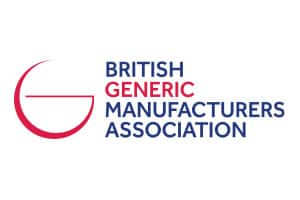 A trade organisation dedicated to hastening the slow uptake of biosimilar medicines in the UK has officially launched.
A trade organisation dedicated to hastening the slow uptake of biosimilar medicines in the UK has officially launched.
The British Biosimilars Association (BBA) – part of the British Generic Manufacturers Association (BGMA) – has pledged to ensure that the UK public get access to lower-priced versions of biologic drugs that can help reduce the NHS’ spend on medicines.
At the moment there are seven biosimilar molecules on the market in the UK – somatropin, follitropin alfa, filgrastim, infliximab, epoetin alfa, insulin glargine and etanercept – and this is set to increase dramatically in the coming years as more branded biologics drugs lose patent protection.
However, the UK has lagged behind other European countries in adopting biosimilars and restricting access “costs the NHS money that could be used for other treatments”, according to the BBA, which sees educating clinical and non-clinical people in the NHS and other organisations about the benefits of biosimilars as a core objective.
Warwick Smith, who serves as director-general of the new organisation as well as the BGMA, points out that six of the top 10 medicine expenditures by the NHS are on biologic drugs, adding that it is “vital that the UK maximises the potential offered by the increased use of biosimilar medicines”.
Despite being around for several years in Europe, the awareness of biosimilars remains fairly low – with a survey carried out in 2014 by Therapy Watch finding just 8% of EU physicians spontaneously volunteering information on biosimilars.
The complex nature of biologics means that unlike small-molecule drugs it is practically impossible to duplicate a drug entirely, as even a single manufacturer’s product can exhibit variations between production runs, for example in the pattern of side chains on a protein-based drug.
According to definitions used in Europe, a biosimilar product has no clinically meaningful differences with the reference drug in terms of safety, purity, and potency, but can have minor differences in other clinically-inactive characteristics.
The BBA claims that a lack of awareness in the UK has led to differences in prescribing rates for biosimilars between NHS trusts, with some routinely making them available and others overlooking them almost entirely.
Last year, the NHS came under criticism after it emerged that a biosimilar of Janssen/MSD’s Remicade (infliximab) had achieved just 5% penetration in the UK – much lower than in other EU countries – with some suggesting there was a lack of guidance on biosimilar use.
NICE had previously recommended that the new biosimilar versions Celltrion’s Inflectra and Remsima should be used ahead of the original brand.
NHS England welcomed the formation of the BBA, with chief pharmaceutical officer Keith Ridge saying: “it is important that clinicians are aware of their potential and that wherever appropriate biosimilar competition is encouraged.”
The creation of the BBA comes as the NHS is seeking savings of £22bn by 2021 in order to meet the objectives of its latest five-year plan.




